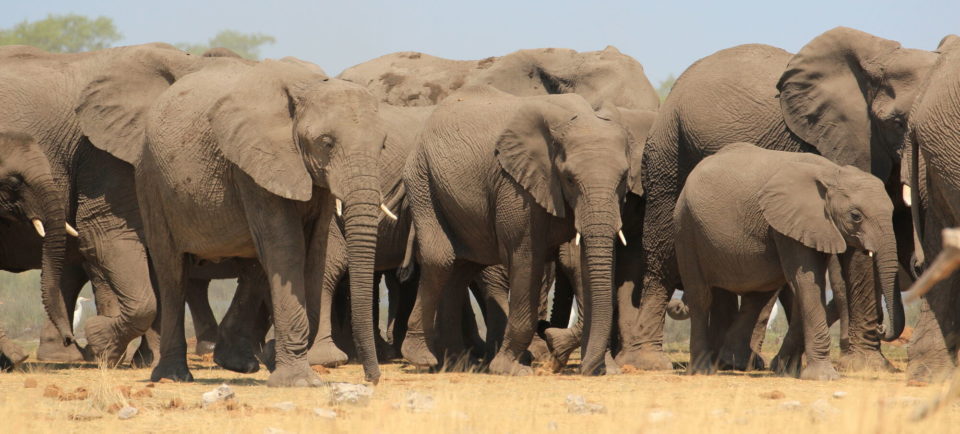By Prisca Sam-Duru
Experts have warned that exploratory project in Botswana and Namibia poses great threat to ecosystems, local communities and wildlife.
According to a report by The Guardian, campaigners and conservationists are worried that the proposed oilfield stretching across Namibia and Botswana would devastate regional ecosystems and wildlife as well as local communities.
The proposed massive new oilfield according to the experts will put tens of thousands of African elephants under threat even as hundreds of elephants in the region have already died mysteriously in the past year.
Scientists, who have been trying to find the cause of deaths of the elephants believe they may be linked to a rising number of toxic algae which is caused by global heating in their waterholes.
According to Rosemary Alles from Global March for Rhinos and Elephants, “It is incomprehensible that ReconAfrica’s hunt for fossil fuels is going ahead. Fewer than 450,000 elephants survive in Africa, down from millions not so long ago: 130,000 of these have established this region as a home range, and ReconAfrica’s misbegotten plans place them at direct risk.”
Meanwhile, ReconAfrica, a Canadian oil and gas company listed on stock exchanges in Canada, the US and Germany, has leased more than 34,000sq km of land in the Kavango Basin. According to the report, “Seismic exploratory work has begun, and experts say the new oil field could be one of the biggest of recent years. ReconAfrica estimates that the “potential oil generated” could be between 60 billion and 120 billion barrels – and be worth billions of dollars to the regional economy”.
In response, the Namibian government has been quoted as saying that “only exploratory licences had so far been granted which did not allow any production operations. It said the exploratory wells were not located in any “conservancy or environmentally sensitive area and will have no significant impact on our wildlife”. But scientists, environmentalists and local communities maintain that the project could endanger critical water supplies and threaten the Okavango Delta in Botswana which is a huge pristine wilderness and World Heritage Site.
Alles further explained that vibrations from exploratory work are known to disturb elephants, and the increase in construction, roads and traffic would not only drive the animals away but also open the area up to poachers. “Especially when they have young, they avoid areas where there is any human activity, where there is noise and what they see as danger. This can drive them away from their ancient migratory routes and closer to villages and agricultural areas, leading to more human-elephant conflict. There’s a profound irony in this. Here, we have hundreds of elephants dying from an algae bloom caused by climate change, and a few kilometres away, they want to start drilling for yet more oil,” Alles said.
Also commenting on the issue, Director at the Health of Mother Earth Foundation and Chair of Oilwatch Africa, Nnimmo Bassey, said; “Every element of this process – from new roads to drilling sites, refineries to terminals – will devastate the ecosystem and the local communities that depend on it for farming and fishing”.
ReconAfrica, on its part, argues that the project will bring jobs and huge economic benefits to the region without harming the environment. “We sincerely believe that the region’s stable energy industry can be developed in an environmentally and socially responsible manner that is accountable and supports the development and delivery of much-needed economic and social benefits, as well as funding investments in local wildlife and ecological c


